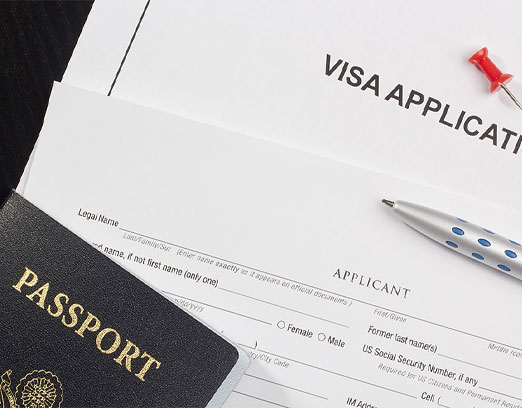
April 09, 2020
Can H-1B Employees be Furloughed during COVID-19?
We understand that in the wake of the COVID-19 crisis, employers are facing various issues such as remote work, furloughs, pay cuts and termination. We have briefly addressed some key aspects in the H-1B context below in an effort to provide clarity and guidance as you navigate through unique issues during this unprecedented time.
Work from Home
Due to the ‘shelter in place’ mandate across multiple states in America, many employees are required to work from home, including the H-1B workers. If the H-1B worker’s home is within the same Metropolitan Statistical Area (MSA) as his normal work location, no new LCA and/or H-1B amendment petition is required. The employer just needs to post a notice at the home office location for 10 days. In the COVID-19 context, the DOL has stated that the notice will be considered timely when placed “as soon as practical and no later than 30 calendar days after the worker begins work at the new worksite location.”
If the H-1B worker’s home is located outside the MSA of his primary worksite, the “short-term placement” option can be availed in such a case (without filing a new LCA and/or amendment petition). Short-term placement permits placement of an H-1B worker at a worksite (not listed in the approved LCA) for up to 30 workdays per year provided other terms and conditions of employment remain the same; placement may be extended for an additional 30 working days (but for no more than 60 working days within one year), provided the worker maintains ties to his primary and permanent worksite.
Furloughs and Termination
Under the regulations, H-1B workers may not be furloughed or placed on unpaid leave if the employer is unable to pay their wages during that time. Employers who are unable to continue to pay the required H-1B wage (as set forth on the certified LCA) should file an amended H-1B petition for a reduced wage (as a wage change would likely be considered a material change) provided it meets the prevailing wage. Alternatively, the employer can terminate the employment of the H-1B worker, but must pay for the worker’s return to his country and also notify the USCIS of such termination and withdraw the LCA filed with the DOL.
Employers who bench H-1B workers without pay run the risk of being subject to fines, back wages and potentially debarment from immigration programs.
Reduced Wages and Hours
The employer is required to pay the wages as listed on the LCA certified by the DOL. Typically, a change in the worker’s wage or hours such as from full time to part time would be considered as material and the safest course here would be to file a new LCA to reflect the changes and an amended H-1B petition. Also, an H-1B worker’s salary cannot be reduced below the prevailing wage for the applicable geographic area nor below that of similarly situated U.S. workers.
Guarantees of stock options are not considered wages by the DOL in the H-1B context and thus any such guarantee to supplement or make up for the reduced wages could potentially trigger employer liabilities. However, the grant of a guaranteed (unconditional and non-contingent) bonus which is paid later as salary may satisfy the wage obligation but there’s uncertainty at the moment as to how DOL would view this. There is a chance that the DOL will take a liberal view of this in view of the unprecedented COVID-19 situation.
Paycheck Protection Program – Under the federal government’s Paycheck Protection Program, small businesses (having fewer than 500 employees) can avail of low-interest loans from the government to pay their employees’ salaries unto a cap of $100,000 salary per annum (including salaries of H-1B workers), among other things. The maximum loan granted will be equal to 2.5 times the average monthly payroll costs for the previous calendar year, up to $10 million. If certain conditions are met, the full principal loan amount could be forgiven.
Grace Period upon Termination
Upon employment termination, the H-1B worker is allowed a grace period of up to 60 days (or until the existing H-1B validity period ends, whichever is shorter). While the worker cannot work during the grace period, he may lawfully remain in America. During this period, he may be eligible to change employers or change his status from H-1B to F-1 (student) or B1/B2. The change of status must be considered and filed before the end of the 60-day grace period to ensure there is a timely filing.
Penalties for Non-Compliance
Employers that fail to comply with H-1B wage requirements may be subject to the following:
- monetary civil penalties;
- back wages as stated in the LCA to be paid to H-1B employees;
- debarment from use of the H-1B program; and
- other administrative remedies as appropriate.
If you have questions about this or need further information or clarity, please reach out to: (1) Poorvi@lawquestinternational.com; or (2) Zeenat@lawquestinternational.com
